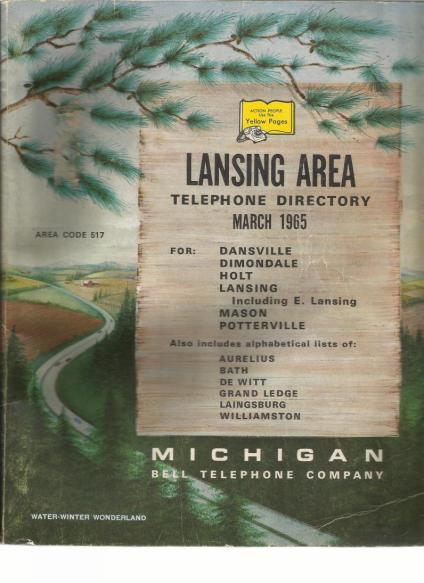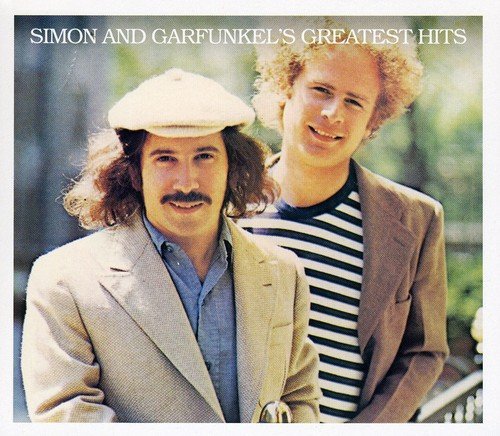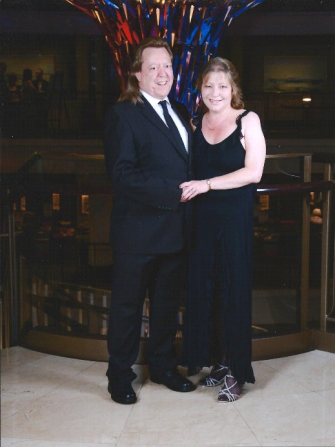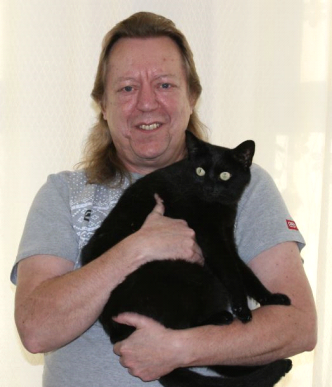What drives my spirit? That is such a wonderful question. So often we live life in the past, nursing ancient grudges and scarred-over wounds inflicted by those for whom we once cared, or it’s spent reliving some special moment in time when all seemed right in the world. We focus so much on the past—and even the future—that we forget to appreciate the present. As writers, we can use those old wounds as plot lines for another compelling story, a life-affirming essay, or a cautionary tale. As human beings, we must learn to live for today before our time here is finished. We must seek balance. Living life in the here-and-now is what truly drives my spirit. We are not promised tomorrow, and yesterday cannot be relived. But just look at all the inspiration to be discovered today!

Letting Inspiration Take the Wheel
What drives your spirit? It’s a simple enough question—though the answers can be quite complicated. As writers, inspiration is that very substance that leads us on our journey of telling believable stories. But what about those who don’t write?
Inspiration drives my spirit. And not just the writer side of me, either. Through three of my young nieces, I have been inspired to giggle like a schoolboy again. These lovely girls just have that sort of charm. We lost their father—my youngest brother—some years ago. This loss came rather suddenly, and, for the most part, unexpectedly. As a then-forty-three-year-old man, that news knocked a hole in the very center of me. I took the loss rather personally. What the heck were all those prayers for if they’d only gone ignored? And I wasn’t the only one praying for my brother. I went into a dark place afterward, found myself angry and confused. I all but abandoned my prayer life. I mean, what’s the sense of praying if God either won’t listen or just says no? (For the record, I still believe in prayer.)
To say my brother had a talent for making babies would be an accurate statement. He left nine children fatherless when he passed away—including a newborn baby boy who will never know his father. But these girls, they were five, seven, and eight at the time. They knew their father. They would certainly miss him in ways none of us will ever comprehend without having lost a parent at such young years. These same girls are beautiful and silly and kind and so full of life. It’s that silliness that is infectious. They make me laugh. But even more so, they make me giggle—much like a schoolboy. They’ve not forgotten their daddy. They’ve just bounced back the way kids will. They see there is still life left to be lived. They’ve quietly inspired me to follow suit.
They need not be tragic, those circumstances driving our spirits. Some of my greatest inspirations have been found languishing in boxes beneath tables at so many yard sales. A 1965 telephone directory for my home town led to the writing of one of my most-read essays. I mean, think about it: A telephone book. Who writes about that sort of thing?

Consider the lost history found in the pages of that directory and you’ll see where inspiration stirred her magic inside of me. My father, a young newlywed and first-time dad, is forever a nineteen-year-old with his entire future ahead of him between those pages. Restaurants that catered to my parents’ generation are still open for business within those musty pages. Long-dead relatives remain alive at former addresses that, in the real world, no longer exist. This time capsule conjures all sorts of soul-driving inspiration. It can lead one to write essays or short stories based on such a find. It can also inspire a deep inward examination of self. Have I lived up to their legacies? Am I reaching accomplishments of which my lost ancestors would be proud? I think so—at least at this point in my life. See, my grandfather and father, both deceased, were aspiring writers. They found inspiration to craft short stories and, in the case of my grandfather, a memoir of his teen years, working aboard a Mississippi River paddle wheel steamboat. Neither my father nor grandfather ever found fulfillment in seeing their work published. I have to believe they’d both be thrilled to know I succeeded in that area.

I believe inspiration dwells among the living, daring us to seek it, to discover it, to make it our very own, allowing it to drive our spirits to greater heights.
A few years ago, I moved to the country after years of living within the city limits. Night time in the country, out among corn and soy bean fields, is vastly different from night time for city dwellers. In the city, there are lights everywhere, making it next to impossible to look up and admire God’s handy work. But there are no lights—outside of the moon—here in the country. I find myself stepping out to the back patio or to the front porch many nights, just to look up at the millions of stars flung against the expanse of an inky-black sky. It’s a simple pleasure, really, but one I have come to truly cherish. This, too, inspires me. The night sky has a way of making even the biggest soul feel small and insignificant. It puts life and the cares of living into a proper perspective. These are the same stars the ancients gazed upon thousands of years ago. Three wise men searching for the newly-born Messiah used the brightest of these stars to guide their way. Ancient Egyptians built temples and ascribed names to these same heavenly bodies. Sailors relied upon these beacons to lead them to brave new worlds beyond the shores to which they’d been born.
Those stars will still be here long after all of us are dead and forgotten.
Did somebody mention the dead? Yes indeed. Even obituaries offer some of the greatest inspiration to those of us left behind. And you need not have even known the deceased. Obituaries are often small biographies detailing lives lived to the fullest. A few years ago I stumbled across a death notice of a woman named Merrien Josephine Cushman-Vail. Merrien died at age 100. That in itself is quite an accomplishment. One hundred years? Just imagine the things she witnessed during her time on planet Earth. But it’s her childhood story that really grabbed hold of my spirit and demanded an essay from me.

In any good story there is that jumping-off point, that one big moment that sets the stage for what’s to come. For Merrien Josephine Cushman, that big moment came a few weeks before her 14th birthday way back in 1927. The young girl had achieved excellent marks, and because of this, there’d been no need of her presence in class on a fateful May day. She offered to walk her 7-year-old brother, Ralph, to school that morning, the way she normally did. But the boy declined his big sister’s gesture, not wanting the other kids to tease him.
Merrien had busied herself picking flowers when she heard the explosion that ended her little brother’s life.
On May 18, 1927, a disgruntled 55-year-old school board treasurer, angry over his defeat in the spring 1926 election for township clerk, rained mayhem upon the tiny community of Bath, Michigan. Andrew Kehoe had spent the better part of a year quietly hiding dynamite and incendiary pyrotol in the basement of the Bath Consolidated School. A timing device ignited the horror that quiet May morning, killing 45 people, 38 of which were children, while injuring 58.
In today’s world, such acts of inhumanity seem almost commonplace. Grief counselors are often on call to help children deal with the unimaginable. But way back in 1927, there existed no such occupation as grief counselor. Survivors like Merrien were left to deal with the wounds and scars on their own. But deal with it, Merrien did. She went on to enjoy a full and happy life, marrying Clare Vail and raising a family of five daughters and two sons.
“You just have to make up your mind to get through it, if you want to go on,” she told her children whenever they’d experienced tough times. “There’s no other choice.”
I wrote an essay inspired by this amazing woman. And had it not been for her obituary, I may not have found that spark needed to start the creative fire.
A pair of great song writers have claimed dreams as inspiration for some of their master works. Paul Simon tells the story of the way many of his best songs came to him while he slept. He’d wake in the morning and there they’d be, sitting front and center in his mind, just waiting for his guitar to add melody and texture to those words sown like seeds in the night.

Paul McCartney has listed numerous points of inspiration for his immense catalog of music. The song “Yesterday” came to him in his sleep. The melody had such a familiar feel, he became convinced it belonged to some other musician, a song heard on the radio perhaps. The same can be said for another of McCartney’s greatest compositions. But this time a lyric in his song “Let It Be” supposedly came to him in a dream featuring his late mother Mary. According to Sir Paul, he’d been wrestling with the idea of leaving The Beatles. The way he saw it, they’d run their course. Cracks had long formed within the band, causing divisions and hard feelings. Should he stay or should he go? That question found its answer in his mother’s otherworldly admonition to just let it be.

I suppose that’s just the way the soul works in some people. John Lennon’s brilliantly nonsense-laden gem “Lucy In The Sky With Diamonds” is the result of a simple drawing his young son Julian had conjured of a girl in his class.
George Harrison wrote the beautiful “Here Comes the Sun” one early spring morning while sitting in his garden playing guitar with friend Eric Clapton. When inspiration arrives, greet it with open arms and a ready pen.
Without inspiration, human beings go nowhere, see nothing, and contribute little—if anything at all—to society. In the absence of creativity, the soul withers and dies long before the body will. Think of any single invention man has ever created and there will be some person, notion, or purpose that has inspired the inventor.
What about those creative souls that wow the world before vanishing from our collective conscience? One hit wonders, is what society has branded them. Look at Harper Lee, who wrote one of the greatest novels in the history of writing and then offered nothing else. Sure, there’s a “new” release from the storyteller, though that seems to be a manuscript written before To Kill A Mockingbird.
How many musicians have written that one great song, only to find an empty tank when seeking to create their follow-up? Does inspiration dry up? Does it die? Has it left us for another? Inspiration certainly changes because our appreciation changes. As we grow older, wisdom takes root within us. A subject we may write about as young people may not be something we hold onto any longer as we age. Those songs about young love and partying and living a carefree existence are entertaining when written by a young soul. But let’s face it: The songs Taylor Swift writes and sings would come off as ridiculous coming from an older soul like Loretta Lynn.

Inspiration never dies or leaves us. It changes as we grow up. Those who fail to recognize such changes will eventually wither and fade. We begin to compete with self, attempting to re-capture the same processes that went into those early creations that helped establish who we are as writers or musicians or actors or inventors. An audience, no matter how loyal, will always see when a soul has ceased growing.
A quote from the late author Jackie Collins implores us scribes to write what we know. That sounds fine on the surface. After all, if we are ignorant of a subject, why take the chance of coming off a fool? But if our world is limited due to circumstances beyond our control, our work will reflect that need for experience and thus may be found lacking. Inspiration allows us to step out from under those constraints. It is inspiration that pushes us to investigate a matter. Research is itself a great fuel in driving the soul to create. I knew very little of the Roaring Twenties or Mississippi or New Orleans or jazz music—until inspired to research these subjects for my novel Jazz Baby. The deeper I dug down, the more inspired I became. The past came alive before my eyes. Books and photos and old music recordings sprinkled flavors throughout my imagination, breathing life into the story I intended to tell. I learned about these things so I could write about these things. That’s how creativity works.

A well-told story is, to me, one of the greatest joys on planet Earth. By well-told, I don’t mean proper punctuation or sentence construction or even strong writing mechanics. A well-told story is simply one that is believable. The characters are so real and so vivid the readers begin to care about your protagonist. They begin to despise or pity your antagonist, even viewing that character with suspicion. The story will read as a truthful recounting of some event that has its roots in your spirit, your mind, and no place else. A well-told story will transport us to faraway lands while transforming our own opinions on a matter we’ve maybe never really considered. It will burn itself into the psyche, forever remaining mere steps from our thoughts.
I’ve read several amazing books that remain with me in this fashion: The Poisonwood Bible, Winter’s Bone, The End of Alice. Every so often, a scene from one of these masterpieces will disrupt my thoughts, usually unbidden, and remind me why it is I enjoyed reading that particular work. When that happens, I’ll grab one of those lives from my box of books, and begin again thumbing those pages, sampling portions of brilliance, often discovering some great line or scene I may not have appreciated during that initial reading.
What drives my spirit? Life and the effort required to live it to its fullest.


























 Robert and Lynn
Robert and Lynn Robert and Jet
Robert and Jet



